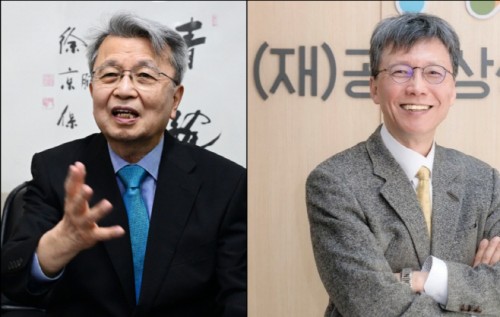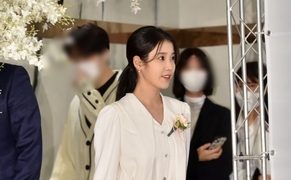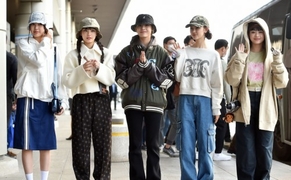 |
| Lee Gak-beom, a senior conservative professor emeritus at KAIST (left), and Lee Byung-hoon, a senior liberal professor emeritus at Chung-Ang University (right), called for “integration” beyond “conflict” in support of the public’s will of the 22nd general election./ Photographed by Lee Byung-hwa |
AsiaToday reporter Park Ji-sook
The aftermath of the April 10 general elections is intense. Due to the conflict and confrontation between the two major parties seen throughout the election campaign, the public was extremely tired. More than 20 days have passed since the election, but the National Assembly is still engaged in confrontation over various issues related to special investigation as well as coordinating a meeting between President Yoon Suk-yeol and opposition leader Lee Jae-myung.
During the general election campaign, confrontation between the progressives and conservatives was rampant rather than showing the identity and clarity of each party.
Issues related to people’s livelihood, such as inflation and economic stability, and major agendas to be discussed at the National Assembly, such as low birthrate, local extinction, aging, and the climate crisis, were not handled as general election issues.
Despite “judicial risks” in both the ruling and opposition parties, public sentiment in the general election put much emphasis on bringing the Yoon administration to “judgment.” This would mean that the ruling party, which have been entrusted with government power by the people, have greater responsibility.
As a result, many experts point out that both the ruling and opposition parties should now engage in “integration” through cooperation and communication for the people, rather than confrontation.
Senior conservative and progressive scholars that AsiaToday met on Sunday called for integration beyond conflict.
Lee Gak-beom, a professor emeritus of sociology at KAIST who was the chairman of the Yoon Suk-yeol presidential inauguration speech preparation committee, stressed that the ruling and opposition parties should create a foundation for common dialogue for integration beyond conflict. “We should not criticize the other party,” prof. Lee said. “We should accurately analyze the cause of the conflict and stop amplifying the conflict.”
Lee Byung-hoon, a master of labor research and professor emeritus of sociology at Chung-Ang University, said, “Political polarization and deepening confrontation between the parties creates a democratic crisis and leads to crisis of people’s livelihoods.” He stressed that both conservatives and progressives should recognize each other, sympathize with the crisis of annihilation and constantly communicate for cooperation and competition in good faith.
#Lee Gak-beom #Lee Byung-hoon
Copyright by Asiatoday
Most Read
-
1
-
2
-
3
-
4
-
5
-
6
-
7





















